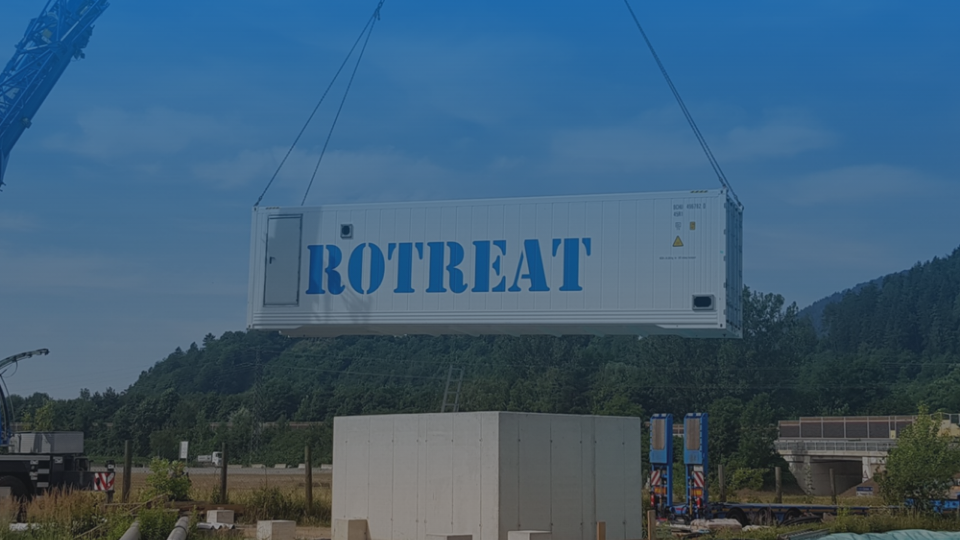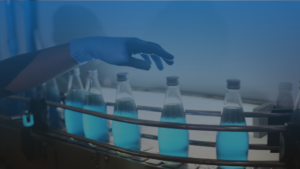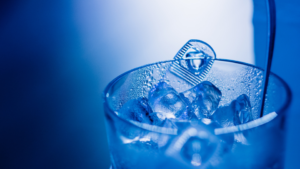Introduction: The Global Need for Advanced Water Treatment
Access to clean, safe water is one of the most critical challenges facing the world today. With population growth, urbanization, and industrial expansion placing unprecedented demands on water resources, the need for innovative water treatment solutions has never been more urgent. Compounding this issue are the impacts of climate change, which exacerbate water scarcity, disrupt ecosystems, and threaten the availability of potable water for millions of people globally. In this context, industries, municipalities, and governments are under immense pressure to address these challenges while ensuring environmental sustainability.
Traditional water treatment methods, while effective in the past, are increasingly ill-suited to meet modern needs. These approaches often rely heavily on chemicals, consume vast amounts of energy, and generate significant waste, contributing to environmental degradation. Moreover, as regulatory standards for water quality become stricter, traditional systems struggle to adapt, creating a critical gap that must be filled by more advanced and sustainable technologies.
Innovative water treatment solutions are the cornerstone of this evolution. By leveraging cutting-edge technologies, these systems are not only improving water quality but also addressing key issues such as resource efficiency, operational cost reduction, and environmental protection. Companies like Hydreatio GmbH are leading this charge with groundbreaking products like Rotreat, which redefine what is possible in water management. These innovations are not just about compliance; they represent a transformative shift toward resilience, sustainability, and future-readiness in water infrastructure.
The global water crisis demands collective action and forward-thinking solutions. By adopting advanced water treatment technologies, industries and communities can ensure a steady supply of safe, high-quality water while safeguarding natural resources for future generations. The time to act is now, and the tools to create a sustainable water future are within reach.
The Challenges of Traditional Water Treatment Methods
Traditional water treatment systems have served as the backbone of global water management for decades, but they are increasingly showing their limitations in the face of modern challenges. These systems often rely heavily on chemical-intensive processes, which, while effective in removing contaminants, pose significant environmental and operational issues. The widespread use of chemicals not only risks leaving harmful residues but also increases costs associated with procurement, handling, and disposal, making these methods unsustainable in the long term. Another major challenge is the high energy and water consumption associated with conventional treatment methods. Processes like coagulation, flocculation, and extensive filtration require significant power inputs, resulting in elevated operational costs and a larger carbon footprint. Moreover, traditional systems typically generate considerable amounts of waste, including sludge and brine, which require additional treatment and disposal, further straining resources and increasing environmental impact.
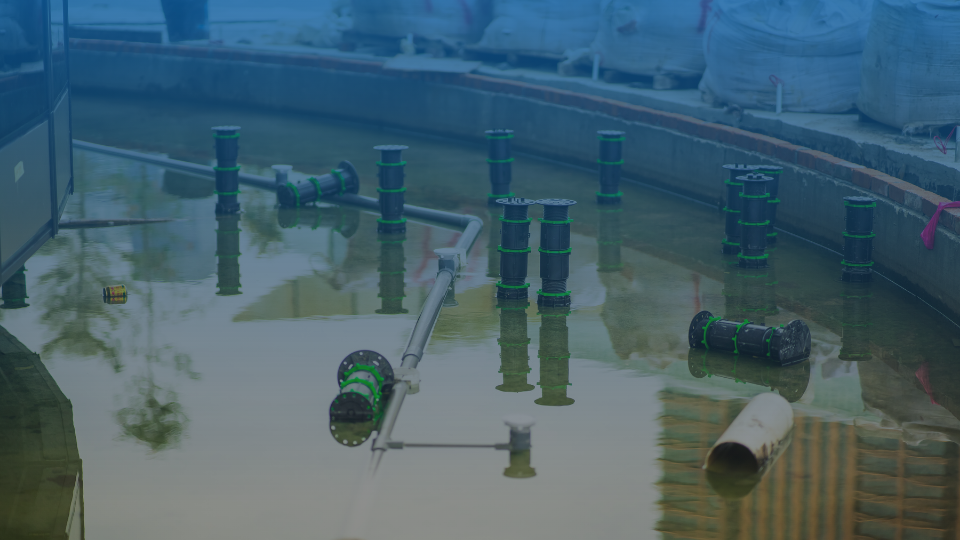
Operational inefficiencies are another pressing concern. Many traditional systems lack the adaptability needed to handle varying water quality conditions or to scale effectively for growing demands. This inflexibility often leads to inconsistent performance, increased maintenance costs, and higher downtime, especially in industrial and municipal applications. These inefficiencies are compounded by aging infrastructure, which remains prevalent in many parts of the world, resulting in frequent breakdowns and costly repairs.
Finally, compliance with increasingly stringent regulatory standards for water quality is becoming more difficult for traditional methods to achieve. Governments and environmental agencies worldwide are demanding cleaner, more efficient, and eco-friendly water treatment practices. The inability of outdated systems to meet these standards not only jeopardizes water quality but also exposes operators to significant legal and financial risks.
These challenges highlight the urgent need for a paradigm shift in how water is treated. The future of water management lies in innovative, sustainable solutions that address these shortcomings while paving the way for greater efficiency, adaptability, and environmental stewardship.
Advancements in Sustainable Water Treatment
The pressing challenges of traditional water treatment methods have catalyzed a wave of innovation, ushering in a new era of sustainable and efficient solutions. These advancements are transforming how water is treated, ensuring higher quality standards while reducing environmental and operational burdens. Modern water treatment technologies are characterized by their ability to address the limitations of traditional methods, making them more resource-efficient, cost-effective, and adaptable to evolving demands.
One of the most significant developments in this field is the shift toward chemical-free or low-chemical treatment processes. Advanced oxidation techniques, membrane filtration systems, and UV disinfection are examples of technologies that minimize or eliminate the reliance on harsh chemicals. These methods not only achieve exceptional water purification but also reduce the risk of chemical residues, equipment corrosion, and environmental pollution, making them safer and more sustainable. Energy efficiency is another hallmark of modern water treatment technologies. Systems are being designed to consume less energy through innovations like optimized aeration, energy recovery in desalination, and smart control systems that regulate energy use based on real-time conditions. Combined with water reclamation techniques, these solutions significantly lower operational costs while addressing resource scarcity.
The integration of digital technology is further revolutionizing water treatment. Smart sensors, IoT-enabled monitoring systems, and AI-driven analytics allow for real-time tracking and optimization of treatment processes. These tools enhance the precision and consistency of operations, ensuring compliance with regulatory standards and reducing waste. Predictive maintenance technologies also improve system reliability, reducing downtime and costly repairs. Sustainability remains at the forefront of these advancements. Modern solutions prioritize eco-friendly practices, such as reducing sludge generation, reclaiming water for reuse, and lowering carbon footprints. These features not only align with global environmental goals but also position operators as leaders in sustainable water management, meeting the expectations of increasingly eco-conscious stakeholders.
As the demand for clean and sustainable water treatment grows, these advancements are setting the standard for the future. By embracing these innovations, industries, municipalities, and communities can achieve the dual goals of operational excellence and environmental stewardship, ensuring access to safe and reliable water for generations to come.
Rotreat: A Game-Changer in Water Treatment
At the forefront of sustainable water treatment innovation is Rotreat, a flagship solution from Hydreatio GmbH. Designed to tackle some of the most complex water management challenges, Rotreat combines cutting-edge technology with a commitment to sustainability, making it a transformative force in the industry. With its scalability, adaptability, and superior performance, Rotreat offers a comprehensive solution for industrial, municipal, and commercial water treatment needs. Rotreat’s advanced filtration and treatment processes stand out for their ability to deliver exceptional water quality with reduced reliance on chemicals. By minimizing chemical usage, Rotreat not only lowers operational costs but also reduces the environmental impact associated with chemical procurement, storage, and disposal. This focus on eco-friendliness positions it as a solution for organizations aiming to align with global sustainability goals while maintaining top-tier water treatment standards.
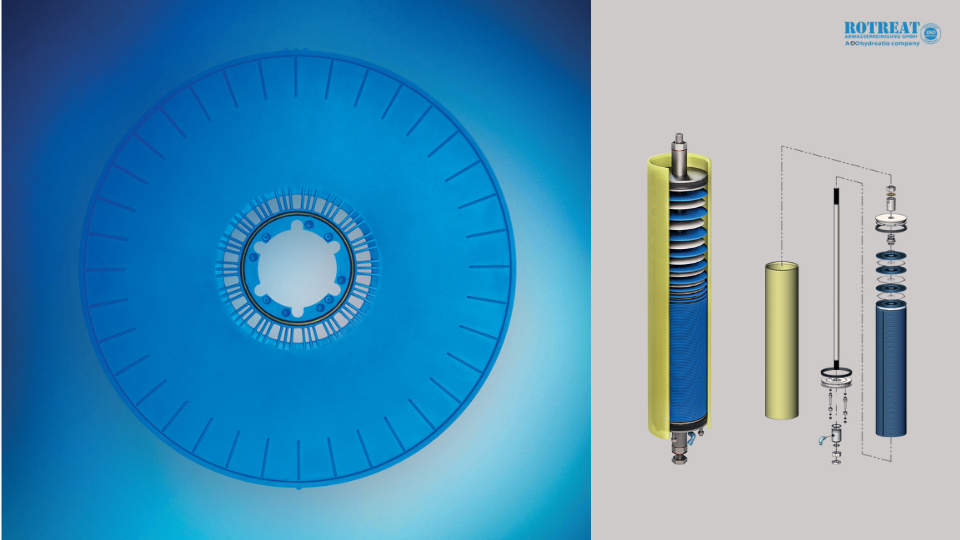
One of Rotreat’s most notable features is its scalability. The system can be tailored to meet a wide range of water treatment demands, from small-scale municipal facilities to large industrial operations. Its adaptability allows it to handle varying water qualities and volumes, making it a versatile tool for diverse applications. Whether managing wastewater, improving drinking water quality, or supporting industrial processes, Rotreat consistently delivers reliable results. The efficiency of Rotreat extends beyond its treatment capabilities. Its energy-efficient design and optimized operational processes significantly reduce utility costs and resource consumption. This translates into greater profitability for operators while preserving critical resources like water and energy. Additionally, its low-maintenance requirements and robust design minimize downtime, ensuring uninterrupted operations and long-term reliability.
Rotreat’s proven success is reflected in numerous real-world applications where it has revolutionized water treatment systems. From reducing waste generation to meeting stringent regulatory standards, Rotreat has demonstrated its ability to address complex challenges with unparalleled efficiency and sustainability. It exemplifies the potential of modern water treatment technologies to provide effective solutions without compromising environmental or economic priorities.
By incorporating Rotreat into their water management strategies, industries and municipalities can achieve cleaner water, lower costs, and a reduced environmental footprint. It is not just a water treatment system—it is a pathway to a more sustainable and resilient water future.
The Path to a Sustainable Water Future
At the forefront of sustainable water treatment innovation is Rotreat, a flagship solution from Hydreatio GmbH. Designed to tackle some of the most complex water management challenges, Rotreat combines cutting-edge technology with a commitment to sustainability, making it a transformative force in the industry. With its scalability, adaptability, and superior performance, Rotreat offers a comprehensive solution for industrial, municipal, and commercial water treatment needs. Rotreat’s advanced filtration and treatment processes stand out for their ability to deliver exceptional water quality with reduced reliance on chemicals. By minimizing chemical usage, Rotreat not only lowers operational costs but also reduces the environmental impact associated with chemical procurement, storage, and disposal. This focus on eco-friendliness positions it as a solution for organizations aiming to align with global sustainability goals while maintaining top-tier water treatment standards.
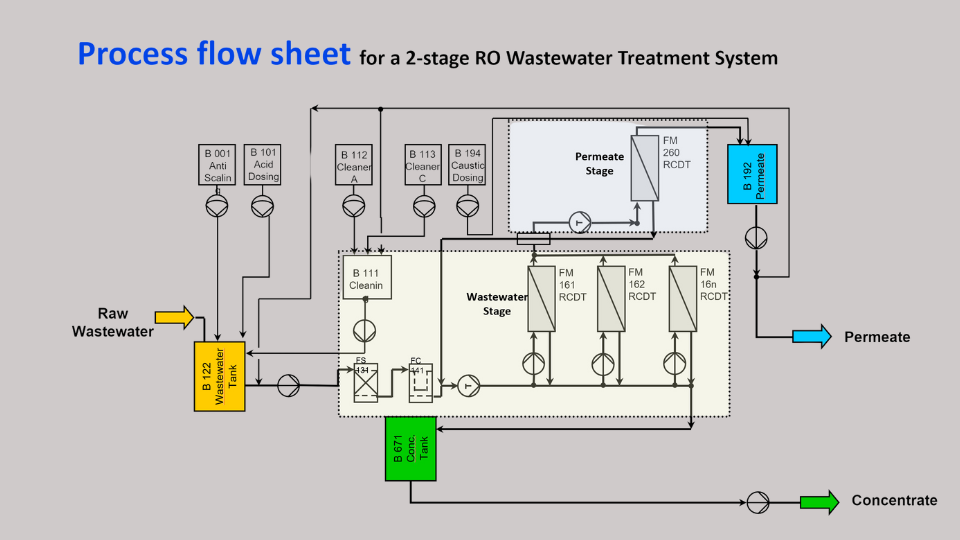
One of Rotreat’s most notable features is its scalability. The system can be tailored to meet a wide range of water treatment demands, from small-scale municipal facilities to large industrial operations. Its adaptability allows it to handle varying water qualities and volumes, making it a versatile tool for diverse applications. Whether managing wastewater, improving drinking water quality, or supporting industrial processes, Rotreat consistently delivers reliable results. The efficiency of Rotreat extends beyond its treatment capabilities. Its energy-efficient design and optimized operational processes significantly reduce utility costs and resource consumption. This translates into greater profitability for operators while preserving critical resources like water and energy. Additionally, its low-maintenance requirements and robust design minimize downtime, ensuring uninterrupted operations and long-term reliability.
Rotreat’s proven success is reflected in numerous real-world applications where it has revolutionized water treatment systems. From reducing waste generation to meeting stringent regulatory standards, Rotreat has demonstrated its ability to address complex challenges with unparalleled efficiency and sustainability. It exemplifies the potential of modern water treatment technologies to provide effective solutions without compromising environmental or economic priorities.
By incorporating Rotreat into their water management strategies, industries and municipalities can achieve cleaner water, lower costs, and a reduced environmental footprint. It is not just a water treatment system—it is a pathway to a more sustainable and resilient water future.
Conclusion: Building Resilient Water Systems for the Future
The challenges surrounding water management are among the most critical issues of our time, demanding immediate and innovative action. Traditional water treatment systems, while instrumental in the past, are no longer capable of addressing the multifaceted demands of modern society. From rising global water scarcity to the intensifying need for sustainable practices, the future of water treatment hinges on the adoption of advanced, resource-efficient solutions.
Innovative technologies like Rotreat exemplify the next generation of water management tools. By reducing chemical dependency, optimizing energy and water use, and delivering superior treatment outcomes, Rotreat and similar systems highlight the transformative potential of sustainable solutions. These technologies are not only redefining operational efficiency but are also paving the way for environmental stewardship, aligning with the growing global emphasis on sustainability.
The role of collaboration cannot be overstated in this transition. Governments, industries, and communities must work together to drive the adoption of advanced water treatment systems. Policymakers must create enabling frameworks that encourage innovation and provide incentives for adopting eco-friendly technologies. Industries need to lead by example, demonstrating how sustainable practices can coexist with profitability and growth. Public awareness and education are equally critical in fostering a collective commitment to sustainable water use.
The time to act is now. By investing in advanced water treatment technologies, industries and municipalities can build resilient systems that ensure access to clean, safe water while protecting the environment for future generations. The journey to a sustainable water future requires bold steps, innovative solutions, and a unified vision. With tools like Rotreat and a shared commitment to progress, we can secure the most vital resource on Earth for the decades to come.
